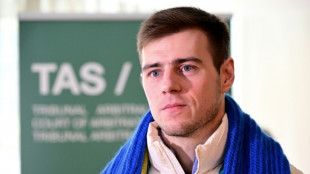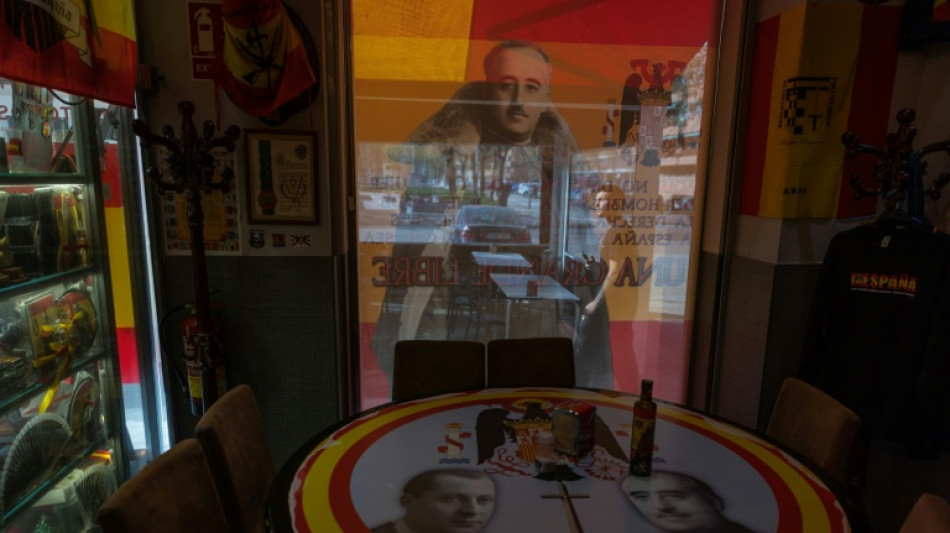
-
 European states say Navalny poisoned with dart frog toxin in Russian prison
European states say Navalny poisoned with dart frog toxin in Russian prison
-
Braathen hails 'drastic' changes after Olympic gold

-
 De Minaur eases past inconsistent Humbert into Rotterdam final
De Minaur eases past inconsistent Humbert into Rotterdam final
-
Eurovision 70th anniversary live tour postponed

-
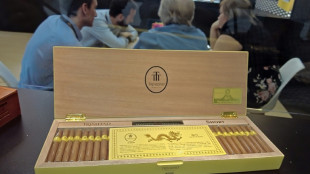 Cuba cancels cigar festival amid economic crisis
Cuba cancels cigar festival amid economic crisis
-
Son of Iran's last shah urges US action as supporters rally in Munich
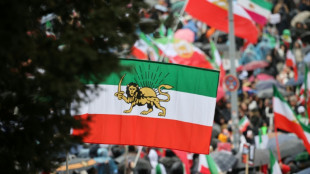
-
 Jansen helps South Africa limit New Zealand to 175-7
Jansen helps South Africa limit New Zealand to 175-7
-
Braathen wins unique Winter Olympic gold for Brazil, Malinin seeks answers

-
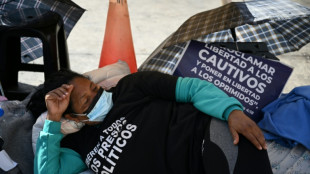 Relatives of Venezuela political prisoners begin hunger strike after 17 freed
Relatives of Venezuela political prisoners begin hunger strike after 17 freed
-
Ten-man West Ham survive Burton battle to reach FA Cup fifth round

-
 International crew set to dock at space station
International crew set to dock at space station
-
Suryakumar says India v Pakistan 'not just another game'

-
 Brazilian Olympic champion Braathen is his own man - and Norway's loss
Brazilian Olympic champion Braathen is his own man - and Norway's loss
-
About 200,000 join Iran demonstration in Munich: police
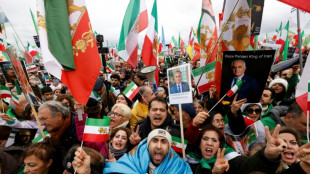
-
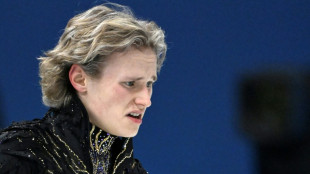 Where did it all go wrong for 'Quad God' Malinin?
Where did it all go wrong for 'Quad God' Malinin?
-
Brazil's Braathen wins South America's first ever Winter Olympic gold

-
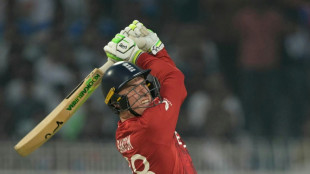 Banton powers England to victory over Scotland at T20 World Cup
Banton powers England to victory over Scotland at T20 World Cup
-
Zelensky says all Ukrainian power plants damaged, calls Putin 'slave to war'
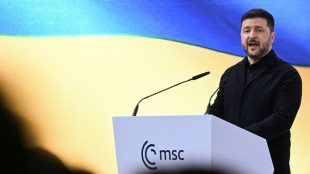
-
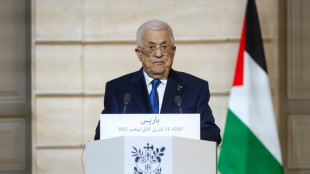 Palestinian leader urges removal of all Israeli 'obstacles' on Gaza ceasefire
Palestinian leader urges removal of all Israeli 'obstacles' on Gaza ceasefire
-
Igor Tudor hired as Tottenham interim manager
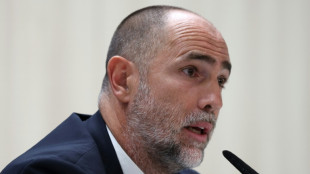
-
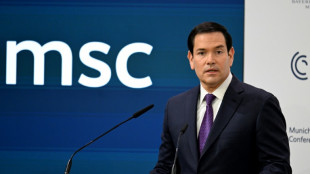 Rubio tells Europe to join Trump's fight, says it belongs with US
Rubio tells Europe to join Trump's fight, says it belongs with US
-
Winter Olympians have used 10,000 condoms
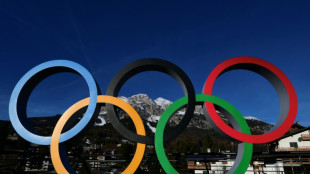
-
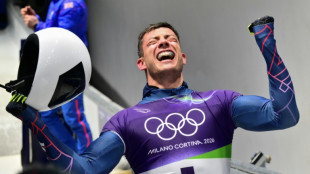 Weston's skeleton Olympic gold a triumph over adversity
Weston's skeleton Olympic gold a triumph over adversity
-
England bowl Scotland out for 152 in T20 World Cup

-
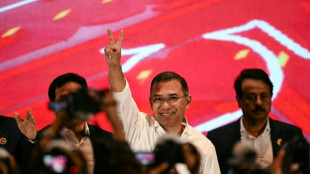 Bangladesh PM-to-be Rahman thanks those who 'sacrificed for democracy'
Bangladesh PM-to-be Rahman thanks those who 'sacrificed for democracy'
-
Sabalenka, Swiatek withdraw from WTA 1000 event in Dubai

-
 Brazil's Braathen in pole for historic Olympic giant slalom medal
Brazil's Braathen in pole for historic Olympic giant slalom medal
-
Top entertainment figures back under-fire UN Palestinians expert
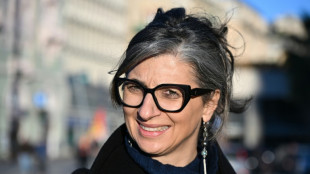
-
 Pakistan 'always ready' for India despite late green light: Agha
Pakistan 'always ready' for India despite late green light: Agha
-
Rubio tells Europe it belongs with US, calls it to join Trump's fight
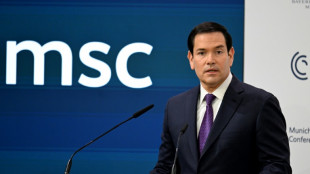
-
 Tucker stars as Ireland crush Oman by 96 runs at T20 World Cup
Tucker stars as Ireland crush Oman by 96 runs at T20 World Cup
-
Rubio tells allies US and Europe 'belong together'
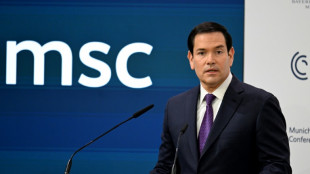
-
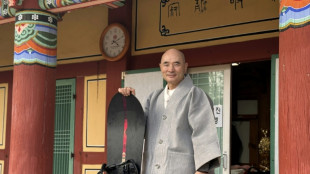 Snowboarding monk in spotlight after S. Korea's Olympic glory
Snowboarding monk in spotlight after S. Korea's Olympic glory
-
Bangladesh's Tarique Rahman poised to be PM as Islamists concede
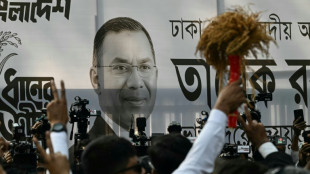
-
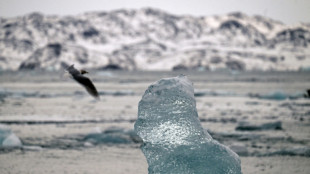 What does Greenland's mining industry look like?
What does Greenland's mining industry look like?
-
Greenland prepares next generation for mining future
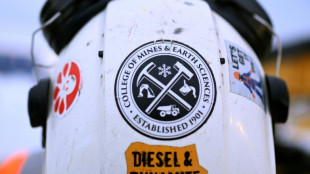
-
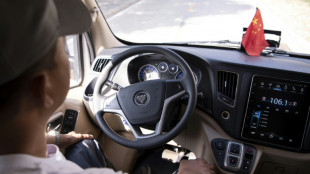 China top court says drivers responsible despite autonomous technology
China top court says drivers responsible despite autonomous technology
-
Sixers rookie Edgecombe leads 'Team Vince' to NBA Rising Stars crown

-
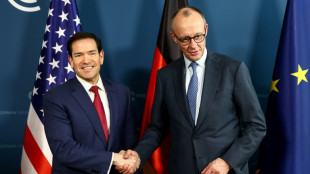 Rubio at Munich security meet to address Europeans rattled by Trump
Rubio at Munich security meet to address Europeans rattled by Trump
-
Medal-winner Sato says Malinin paid for 'toxic schedule'

-
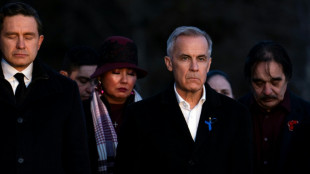 Carney offers support of united Canada to town devastated by mass shooting
Carney offers support of united Canada to town devastated by mass shooting
-
All-in on AI: what TikTok creator ByteDance did next

-
 Healthy Ohtani has Cy Young Award in sights
Healthy Ohtani has Cy Young Award in sights
-
One of Lima's top beaches to close Sunday over pollution
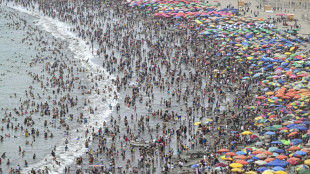
-
 'Nothing is impossible': Shaidorov shocks favourite Malinin to make history
'Nothing is impossible': Shaidorov shocks favourite Malinin to make history
-
Malinin wilts at Olympics as Heraskevych loses ban appeal

-
 How Often Should I Get a Dental Cleaning in Coral Springs, FL?
How Often Should I Get a Dental Cleaning in Coral Springs, FL?
-
New to The Street to Broadcast Show #726 on Bloomberg at 6:30 PM EST Featuring Vivos Therapeutics (NASDAQ:VVOS), Aeries Technology (NASDAQ:AERT), Virtuix Holdings (NASDAQ:VTIX), and Stardust Power (NASDAQ:SDST)
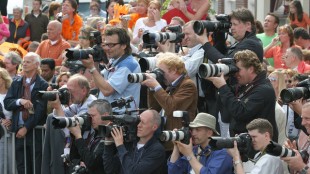
-
 Epomaker HE30 One-Handed Hall Effect Mechanical Keyboard: Born for Gaming
Epomaker HE30 One-Handed Hall Effect Mechanical Keyboard: Born for Gaming
-
B2B Buzz Launches Integrated AI Framework to Combat Declining Returns in Single-Channel Outreach


Franco symbols mark Spanish streets 50 years after dictator's death
Fifty years after the death of General Francisco Franco, thousands of monuments, plaques and street names honouring the dictator remain in place across Spain -- a legacy some believe has lingered far too long.
From imposing neoclassical arches to quiet plazas named after regime loyalists, remnants of Franco's nearly four-decade rule are still etched into the public landscape.
Even some bars and restaurants still display his image, celebrating the man whose regime executed, imprisoned and silenced dissenters during Spain's 1936-1939 civil war and the dictatorship that followed until his death in 1975.
"There are more than 6,000 of these symbols still standing," said Eduardo Espana, co-founder of the website Deberia Desaparecer ("It Should Disappear"), created in 2022 to track what he calls illegal vestiges of the dictatorship.
"It's incomprehensible that a democratic country would preserve such monuments," he added, calling the figure "staggering".
Standing near Madrid's 50-metre (164-foot) tall Victory Arch, built in the 1950s to celebrate the victory of Franco's fascist-backed nationalists in the civil war, Espana points to what he sees as an unresolved trauma.
"This isn't just a piece of architecture. It's a monument to repression," the 34-year-old said.
The arch, located in a busy roundabout, is one of the most prominent symbols of the Franco regime still standing, along with the grandiose Valley of the Fallen, a vast underground basilica and mass burial complex for Franco's supporters killed in combat.
- Franco's remains relocated -
After Franco's death, Spain underwent a transition to democracy.
But a sweeping amnesty law passed by parliament in 1977 shielded both former regime officials and anti-Franco activists from prosecution.
Many symbols of the dictatorship remained untouched.
Efforts to reckon with the past have gained traction in recent decades.
In 2007, then-Socialist Prime Minister Jose Luis Rodriguez Zapatero introduced the "Historical Memory Law", requiring public institutions to remove Francoist iconography from public spaces.
That momentum gathered pace in 2018 when Prime Minister Pedro Sanchez, also a Socialist, took office.
The following year, his government exhumed Franco's remains from the Valley of the Fallen and relocated them to a more discreet family vault to prevent his tomb from becoming a shrine for far-right supporters.
In 2022, a new "Democratic Memory Law" was introduced, to honour victims of the dictatorship and pressure local governments to eliminate regime symbols.
Across Spain, change began to take hold.
In the northwestern region of Galicia and the Canary Islands, crosses honouring Francoist soldiers have been removed.
Under pressure from public prosecutors, the northern city of Santander renamed 18 streets tied to the regime.
And in the southern city of Malaga, an inventory of Francoist symbols is underway.
- 'Think for themselves' -
Not everyone agrees with this removal campaign.
Among the best-known dissenters is Chen Xianwei, a Chinese immigrant who runs a bar in central Madrid named "Una, grande y libre" or "One, great and free" -- Franco's motto for Spain.
"Governments shouldn't tell people what to think," said Chen, who moved to Spain in 1999.
His establishment, filled with busts, flags and posters glorifying the dictator, stands as a controversial tribute to the past.
The law is "manipulating history", Chen said. "People can think for themselves."
Some historians, too, are uneasy with the push to erase symbols. They argue for a more nuanced, educational approach.
"Covering up the remains of a painful past isn't the best way to process or understand it," said Daniel Rico, an art history professor at the Autonomous University of Barcelona and author of "Who's Afraid of Francisco Franco?"
"Removing monuments as if we were children afraid of a coat of arms seems authoritarian," he said.
Rico advocates contextualisation over erasure -- installing plaques that explain the history rather than scrubbing it from public view, for example.
Espana disagrees, arguing that these symbols cause ongoing harm.
"History should be taught in schools" and not in public spaces, he said.
"If we stop teaching, that's when the memory of these events disappears."
A.Rodriguezv--AMWN
